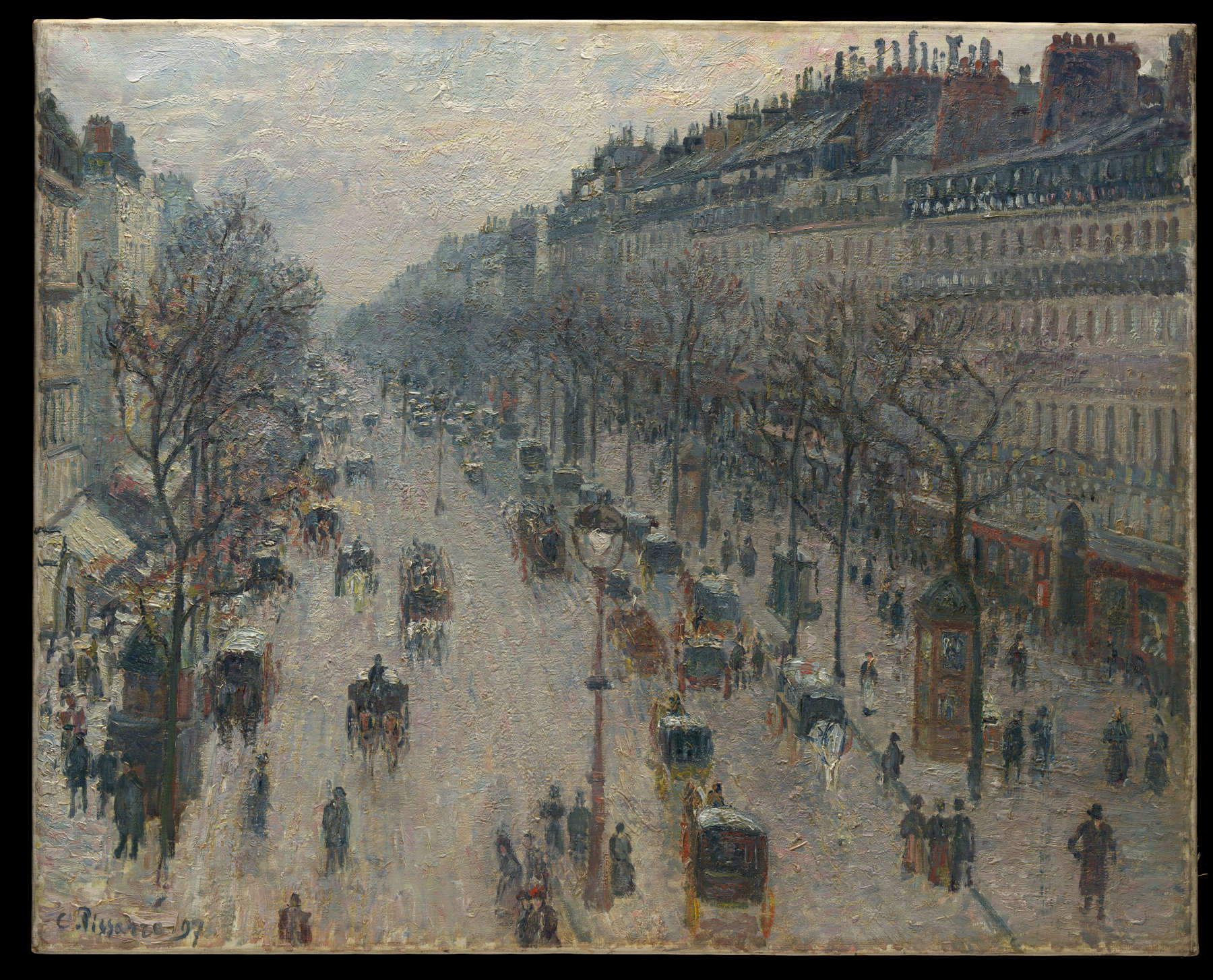Coming to Italian theaters only on November 19 and 20 is the documentary Pissarro. The Father of Impressionism, the second installment of the La Grande Arte al Cinema cycle, directed by David Bickerstaff. The film chronicles the life and work of Camille Pissarro (Charlotte Amalie, 1830 - Paris, 1903), one of the founders and pillars ofImpressionism, through personal letters and exclusive archival materials. The list of venues will soon be available at nexostudios.co.uk, and presales will open Oct. 18.
Born in the West Indies, Pissarro took up painting in Paris, where, at age 43, he gathered around him a group of passionate young artists who would become the Impressionists. Although initially despised by critics, these artists revolutionized modern art. Pissarro was an inspirational figure to colleagues such as Claude Monet and Paul Cézanne, and the documentary chronicles his life and artistic evolution with a focus on his decisive influence.
The film explores the retrospective devoted to Pissarro by the Ashmolean Museum in Oxford, which houses the largest documentary collection on the artist. In addition to this, the exhibition at the Kunstmuseum Basel shows how Pissarro was a driving force that shaped the Impressionist movement, transforming it into one of the most beloved artistic currents.
Enriching the documentary are interviews with experts such as Colin Harrison and Agnes Valenčak of the Ashmolean, museum director Alexander Sturgis, and Josef Helfenstein of the Kunstmuseum. In addition, Claire Durand-Ruel of the Paris-based Durand-Ruel Archive provides an intimate view of Pissarro as man and artist.
“Whenever I start a project on an artist, I look forward to discovering something new about him,” says director David Bickerstaff. “Born to a family of Jewish descent in St. Thomas, West Indies, Pissarro became a dedicated family man, a generous, passionate, experimentalist. An educated, astute, socially conscious and anarchic artist. He was also a great letter writer, which is a gift for a documentarian, as these writings provide an intimate view into his thoughts, the world he lived in, the influences others had on him, and his unerring approach to making art. I am grateful to the Ashmolean Museum in Oxford and the Kunstmuseum in Basel, which have been incredibly generous in providing access to their exhibitions on the painter, giving our rooms plenty of time to dwell on his work in detail. It is difficult to identify Pissarro’s most famous work, but the thing that became apparent to me during the making of this film is that it is his particular and experimental depiction of the French countryside and Parisian streets that has defined what we now mean by great Impressionist painting. No wonder Pissarro has been called ’the father’ of Impressionism.”
 |
| Pissarro, Father of Impressionism: the film in theaters Nov. 19 and 20 |
Warning: the translation into English of the original Italian article was created using automatic tools. We undertake to review all articles, but we do not guarantee the total absence of inaccuracies in the translation due to the program. You can find the original by clicking on the ITA button. If you find any mistake,please contact us.